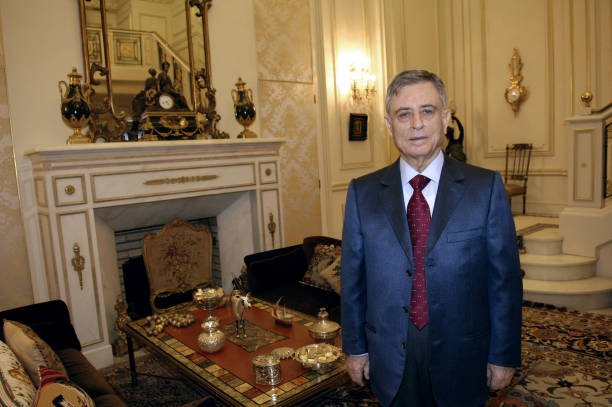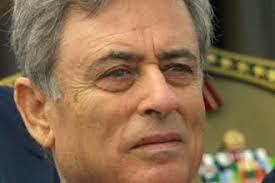Former Syrian Vice President Abdul Halim Khaddam expects a change in the Syrian regime within months and the formation of a transitional government. He accuses the authorities in Damascus of participating in the assassination of the late President Rafik Hariri.
Khaddam affirmed in an interview published by the Turkish newspaper “Al-Sabah” that he is engaged in intensive contacts with all Syrian opposition groups, both inside and outside Syria. He mentioned receiving significant support from within the Baath Party and from inside the country.
He explained that he has had contacts with the Kurds, the Muslim Brotherhood, as well as prominent figures in the military and economic sectors, in addition to strong groups. He stressed that everyone agrees on the necessity of “changing the system in Syria.”
Khaddam stated, “All parties will soon see, within a few months, how we will change the system and form a transitional government as part of a plan to restore Syria to its distinguished status, which it deserves.” He added, “This plan will be implemented without a revolution and in cooperation with the people,” emphasizing that “the Syrian opposition is currently growing stronger.” There are currently no contacts with the United States or the West, but the important thing at this stage is to secure internal coordination with the opposition, which is about to be achieved.
Khaddam mentioned that his differences with Syrian President Bashar al-Assad “began after the death of his father, former President Hafez al-Assad.” He pointed out that he had proposed to “Bashar to carry out reforms in administration, the economy, and politics, which led to problems with him.”
In a statement distributed by Khaddam’s office, the former deputy president of Syria denounced the “policy of repression and intimidation practiced by the authorities in Damascus against the citizens.” He also condemned “restricting their freedoms due to expressing their opinions and referring them to the State Security Court under the Emergency Law, which has become a symbol of repression and confiscation of freedoms.”
The statement added that, in addition to “the arrest of dozens of citizens and their imprisonment, such as Mr. Aref Dalila, Riad Seif, Habib Issa, Mamoun al-Homsi, Kamal Labwani, and dozens of other Syrian Kurds and others, the authorities have also prevented gatherings among citizens in their homes, which are part of the customs and traditions of clans and rural areas.”
The statement concluded by saying, “The continuation of the policy of repression, the banning of freedoms, and intimidation throughout the country will eventually turn the country into a large prison. The Syrian people will be able to break the doors of this prison and regain their rights in determining the fate of the country and establishing a democratic system that guarantees public and individual freedoms. It also ensures the transfer of power and the elimination of the individual rule that has exhausted the country.”



